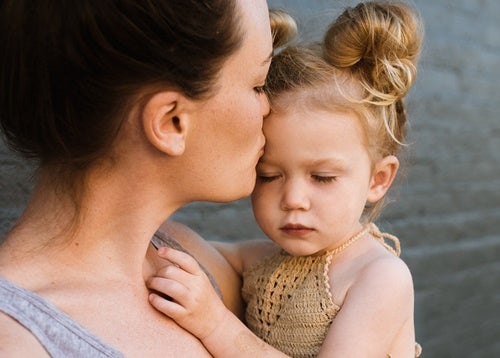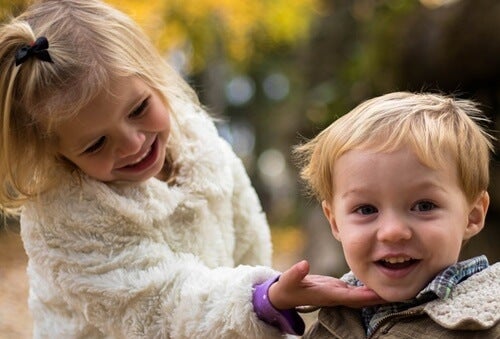Happy Childhood Memories: A Key to Psychological Well-Being


Written and verified by the psychologist Valeria Sabater
Happy childhood memories feed well-being in adulthood. Early experiences that distill sincere affection and attention are like seeds that nurture psychological health. Likewise, few experiences are more exciting than a childhood full of joy, discovery, and special experiences that we always like to remember.
People are made of memories. Our mind constantly escapes to that treasure chest containing our past. To those memories that, like perfumes, remind us of times gone by. To those often pleasant thoughts that make sense of our lives and remind us who we were and what brought us to this present day.
A happy childhood is like a trampoline where our dreams can jump and express themselves, as well as help us grow. It’s there where our fears sleep and don’t disturb us. It allows our potential to continue to develop with optimism and strength.
However, we know that not all people have enjoyed this privilege. People with a traumatic past abound, as well as upbringings where emotional coldness reigned and created voids. It’s very difficult to fulfill ourselves as people when we don’t have pillars to support us.
However, having a difficult childhood doesn’t mean that we can’t have a happy adulthood. It only means that it may a bit more difficult, and that the journey may be longer and more laborious. However, we all have the right and the obligation to overcome those difficult stages of life in order to be what we deserve: people with the right to well-being and fulfillment.
“One of the luckiest things that can happen to you in life is, I think, to have a happy childhood.”
-Agatha Christie-

Happy childhood memories are synonymous with physical and psychological health
Happy childhood memories inoculate us with emotional strength. This fact, which may seem somewhat poetic to us, actually contains evidence that neuroscience has now shown us. A study published in the journal Health Psychology and conducted by Drs. William Chopik and John Eldestein points out the following.
A happy childhood and adolescence is beneficial for our well-being
According to this research, besides having a happy childhood, it’s also important to enjoy a meaningful adolescence. An adolescence full of intense, happy, and enriching experiences. Several things are essential here.
The first factor is that the role of parents and the family environment is undoubtedly key in helping us feel secure. This also helps us to have good self-esteem, the capacity to achieve, and a healthy, strong emotional intelligence.
The second factor highlights the importance of a happy adolescence. Furthermore, Dr. Chopik, from Michigan State University, talks about the importance of taking care of that large period that spans the ages between six and 18.
This is also where our peers come in: friends and individuals of our age who make up our social context. School and high school, and the experiences we have in these settings, will also determine our future well-being.
This study also analyzed people in their 40s and 50s who had had a happy childhood and adolescence. They found that they scored higher in physical and psychological health than those with adverse or traumatic experiences.

Happy childhood memories help reduce stress
Happy childhood memories are a balm for reducing stress in adulthood. This is so for a very simple reason. Having enjoyed a few early years where our fears were addressed, and where those around us made us feel safe and valuable, makes for a more resilient brain.
We must take into account that factors such as neglect, yelling, and insecurity, as well as physical and psychological abuse, produce very high cortisol levels in our body.
This hormone affects normal brain development. It plunges us into a state of hyperactivity and constant anxiety. As a result, we’re much more vulnerable to anxiety as well as other psychological disorders.
It’s also important to keep in mind that factors such as bullying during adolescence are also a risk factor for future psychological well-being. Good childhood memories give us a good foundation of well-being. However, it’s also essential to go through an adolescence where we can count on good friendships and positive and exciting experiences.
Coping with adversity also creates positive memories
Happy childhood memories don’t only arise from positive and rewarding experiences. Often, the experience of an adverse event and the way we face it also gives us great psychological value. An example of this is suffering a loss in childhood.
Sometimes, the death of a loved one or being abandoned by a parent gives us valuable early ways of dealing with loss and grief. We achieve something like this with the support of the other parent, our siblings, uncles, grandparents, and other people close to us.
Not all childhoods are easy, we know. But sometimes, certain situations make us stronger. They offer us exceptional psychological resources to grow up healthy, with courage and hope.
These are opportunities for growth that undoubtedly involve many factors. We can gain in resilience, mental strength, and also openness. Our childhood and adolescence can serve as a springboard for self-realization. However, in other very different cases, they can form a wound, a wall, or a trap that can hold us back for a very long time.

As writer Graham Greene said in his day, “There’s always one moment in childhood when the door opens and lets the future in“. Having it open all the time will also help us to pass on good memories, those that drive us to maturity. In addition to this, we also have the voices of figures who have served as examples and an encouragement to be better people every day.
All cited sources were thoroughly reviewed by our team to ensure their quality, reliability, currency, and validity. The bibliography of this article was considered reliable and of academic or scientific accuracy.
- William J. Chopik and Robin S. Edelstein. “Retrospective Memories of Parental Care and Health from Mid- to Late Life.” Health Psychology (First published: November 5, 2018) DOI: 10.1037/hea0000694
- William J. Chopik, Eric S. Kim, Jacqui Smith. “Changes in Optimism Are Associated With Changes in Health Over Time Among Older Adults.” Social Psychological and Personality Science (First published: June 29, 2015) DOI: 10.1177/1948550615590199
- Melissa T. Merrick, Derek C. Ford, Katie A. Ports, Angie S. Guinn. “Prevalence of Adverse Childhood Experiences From the 2011-2014 Behavioral Risk Factor Surveillance System in 23 States.” JAMA Pediatrics (First published online: September 17, 2018) DOI: 10.1001/jamapediatrics.2018.2537
This text is provided for informational purposes only and does not replace consultation with a professional. If in doubt, consult your specialist.








